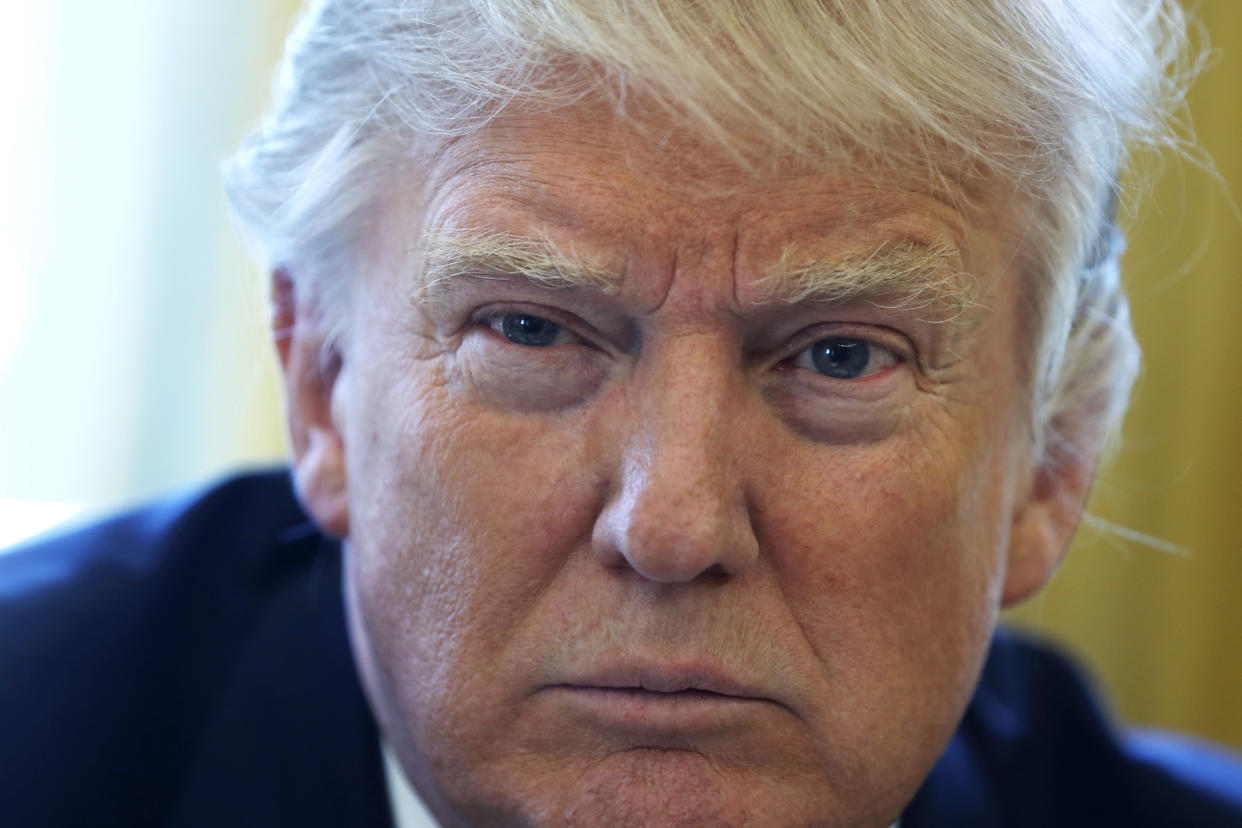Opinion: Doctors Accused Of 'Politicizing Psychiatry' Are Actually Doing The Opposite

Donald Trump’s unfitness for the presidency is an urgent question, widely discussed among pundits and politicians. When psychiatrists and other psychological professionals address the matter, as I have, we are sometimes accused of “politicizing psychiatry.”
The charge tends to be applied loosely and inappropriately, meant more to silence than to reveal what it actually means to put psychiatry to political use. A brief look at history is helpful here.
It is true that psychiatry is more vulnerable than other medical specialties to exploitation for political purposes. My work on Nazi doctors was focused precisely on that issue, and I have since looked at the use of the psychiatric profession to suppress dissidents in other totalitarian societies, including Soviet Russia and Communist China.
Medicine in Nazi Germany was subjected, as were all professions, to what was known as Gleichschaltung, meaning “coordination” or “synchronization” ― in effect, the nazification of the profession. Potential critics were suppressed and leadership roles were given to those considered politically and ideologically reliable.
Those reliable psychiatrists played a central part in eliminating “life unworthy of life,” as carried out in the killing centers of the Nazis’ “euthanasia” project. The murderous act was often performed by a doctor, often a psychiatrist, in keeping with the slogan, “The syringe belongs in the hand of the physician” ― the syringe in this case being a gas cock. It is estimated that something on the order of 250,000 people, among them large numbers of psychiatric and neurological patients, were killed in the “euthanasia” project.
The doctors involved in these medical killings, like those selecting Jews for the gas chambers in Auschwitz, were expected to do what they did. That is, they were carrying out the “malignant normality” imposed by the Nazi regime. While doctors had differing attitudes and emotional struggles, the medical profession in general succumbed to nazification and gave a certain legitimacy to what I have called the reversal of healing and killing.
In the Soviet and Chinese cases too, psychiatrists were co-opted by repressive regimes. The goal was not Nazi-style biological purification but the stigmatizing of political heretics as mentally ill and their incarceration in psychiatric hospitals. In the Soviet Union, they were often given the vague but encompassing diagnosis of “sluggish schizophrenia,” an invented disorder that psychiatrists received training on. Many psychiatrists came to believe in the disorder and to think that defying the regime really was pathological. Others became “bureaucrat-psychiatrists,” who, as one of them put it, “expected to do what they [the KGB] asked us to do, and we knew what they expected.”
The Chinese Communists were influenced by Soviet psychiatry but added an important element of their own. They subjected millions of intellectuals, students and associates of the former regime to a coercive program of “thought reform.” Sometimes confusingly referred to as “brainwashing,” it consisted of relentless criticism, self-criticism and continuous confession. In my study of this process, I found that it was run not by psychiatrists or psychologists but by Communist cadres, who imposed the party’s version of political reality in ways that aligned with the efforts of the state-controlled psychiatric profession.
America is not Nazi Germany or Soviet Russia or Communist China. We do not have state-controlled psychiatry or medicine, and whatever you think of Trump, he is surely no Hitler. What we have in our country is a large number of psychological professionals bearing witness to the malignant normality that Trump and his followers seek to impose.
Trump does this in at least two extremely dysfunctional ways: his profoundly compromised relationship with reality and his attack mode in response to crisis or criticism.
I speak of Trump’s solipsistic reality, meaning his need to take in the world solely in relation to the outlandish psychological requirements of his own self, with a rejection of accepted standards of evidence and no sense of having responsibility to what the rest of us call reality. I relate that tendency to his sense of feeling beleaguered by malevolent forces, which include institutions necessary to our democracy such as the press, the intelligence services and the judiciary. That attack mode becomes particularly dangerous when he is confronted with an actual nuclear threat, as in relation to North Korea.
I make no diagnosis of psychiatric illness, in fact no diagnosis at all, but rather point to a psychological pattern of presidential unfitness that endangers our democracy and could have the gravest of consequences for the entire world.
To become a witnessing professional in this way is to reject politicized psychiatry, and to reject as well the role of the obedient bureaucrat, psychiatric or otherwise, who supports the lies of solipsistic reality. To speak out is a hopeful act, an expression of a free professional in an open society and a statement that voices must be heard in our democracy to sustain it.
Dr. Robert Jay Lifton is author of The Nazi Doctors: Medical Killing and Psychology of Genocide, Thought Reform and the Psychology of Totalism: A Study of ‘Brainwashing’ in China, and Witness to an Extreme Century: A Memoir. He is a lecturer in psychiatry at Columbia University, and his most recent book is The Climate Swerve: Reflections on Mind, Hope, and Survival.
ALSO ON HUFFPOST OPINION
Conservatives Who Are Horrified By Trump Let Themselves Off The Hook
Men Write History, But Women Live It
Love HuffPost? Become a founding member of HuffPost Plus today.
This article originally appeared on HuffPost.

